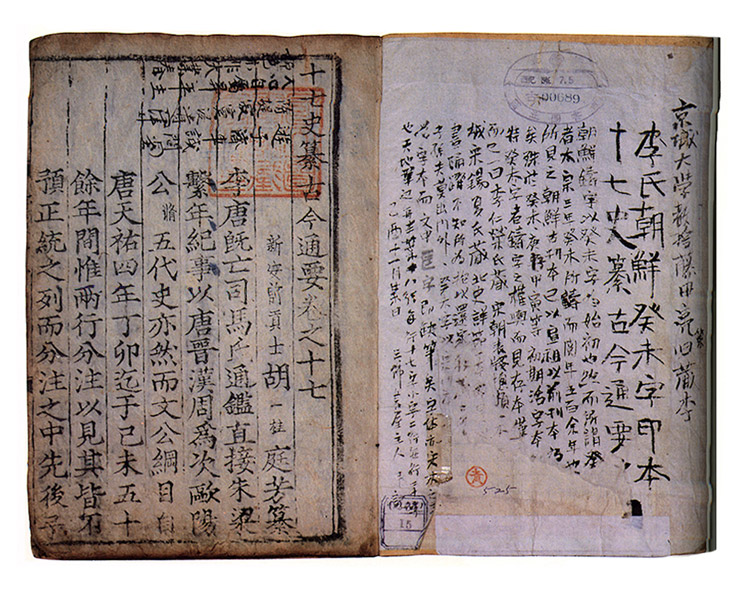Korean literature museum to be built
The new facility, which is expected to be completed in 2026, will house about 120,000 literary artifacts, with a focus on past and future, a place symbolising the “hallyu”, the South Korean cultural wave that has made Korean literature, along with K-pop music and K-dramas, known the world over.
Rome (AsiaNews/Agencies) – Construction of the new National Museum of Korean Literature (NMKL), the first in the country, began in Seoul today in the presence of the Minister of Culture, Sports, and Tourism Yu In-chon.
“It will become a truly large and strong nest for Korean literature to spread its wings and soar high, not only in Korea but also in world culture,” said museum director Moon Chung-hee, quoted by The Korea Times.
Located in the northwestern neighbourhood of Jingwan-dong, the facility is set to be completed by the end of 2026, covering an area of 14,993 square metres on four stories, including two basement levels.
The museum is designed around the theme of the “scenery of a village,” complementing the natural background of Bukhan Mountain (Bukhansan), just north of the capital, and comes with an estimated price tag of 71.6 billion won (US$ 52.8 million).
The facility will include a permanent exhibition hall centred on the history and future of Korean literature, along with spaces for temporary exhibitions, an outdoor garden, educational and interactive areas, a multi-purpose auditorium, and a storage area.
Director Moon Chung-hee explained that the NMKL team has carefully collected and rescued from oblivion literary artifacts considered Korean historical heritage.
“By the time it opens in 2026, it aims to firmly establish its position as a truly representative museum of Korean literature by possessing approximately 120,000 literary materials," Director Moon noted.
Minister Yu In-chon expressed his ministry’s full support for the project. "As global attention on Korean literature surges, it's no surprise that Korean writers are gaining recognition at international awards," he said during the ceremony.
Interest in Korean culture is riding a Korean wave or hallyu, due to the popularity of K-dramas as well as K-pop music by groups like BTS and Blackpink, who have become top box office attractions in the West.
This is also happening for literature, which is increasing its readership around the world, easily finding shelf space in European bookstores and beyond, thanks to translations of contemporary writers like Han Kang, Kyung-Sook Shin, and Lee Min Jin.
Their voices showcase the different facets of the Korean reality, through various genres and styles; for example, Kang Hwa-gil deals with the issue of gender-based violence, Bae Myung-hoon tackles the relationship between large economic groups and power, while Jung-Myung Lee speaks about the hope of the new generations.
One voice, poet and writer Ko Un, one of the most authoritative representatives of contemporary South Korean culture, was nominated three times for the Nobel Prize for Literature between 2002 and 2005.
As a result of the current interest that Korean writers arouse in the world, the new museum also embodies a desire to see literature reach "new heights", said Moon Chung-hee.
After the inauguration ceremony, Minister Yu In-chon met with some representatives of the literary scene to discuss how to improve support for literature and translation. One idea is the creation of a Korean literary festival to boost Korean literature.
This art has deep roots in the country. During the Three Kingdoms period (220-280 AD), works were often historical and mythological in nature. With the introduction of the Chinese writing system, literary texts began to reflect Confucian and Buddhist influences.
In the Joseon period (1392-1897), literature flourished with the use of the Hangul alphabet, created in the 15th century. Poets such as Hwang Jin-i and novelists like Kim Man-jung made valuable contributions.
After liberation from Japan in 1945, South Korean literature tackled themes such as modernisation, national division, and Korean cultural identity, with authors like Yi Mun-yol and Han Kang gaining international recognition.
12/02/2016 15:14
07/04/2022 11:15







.png)










